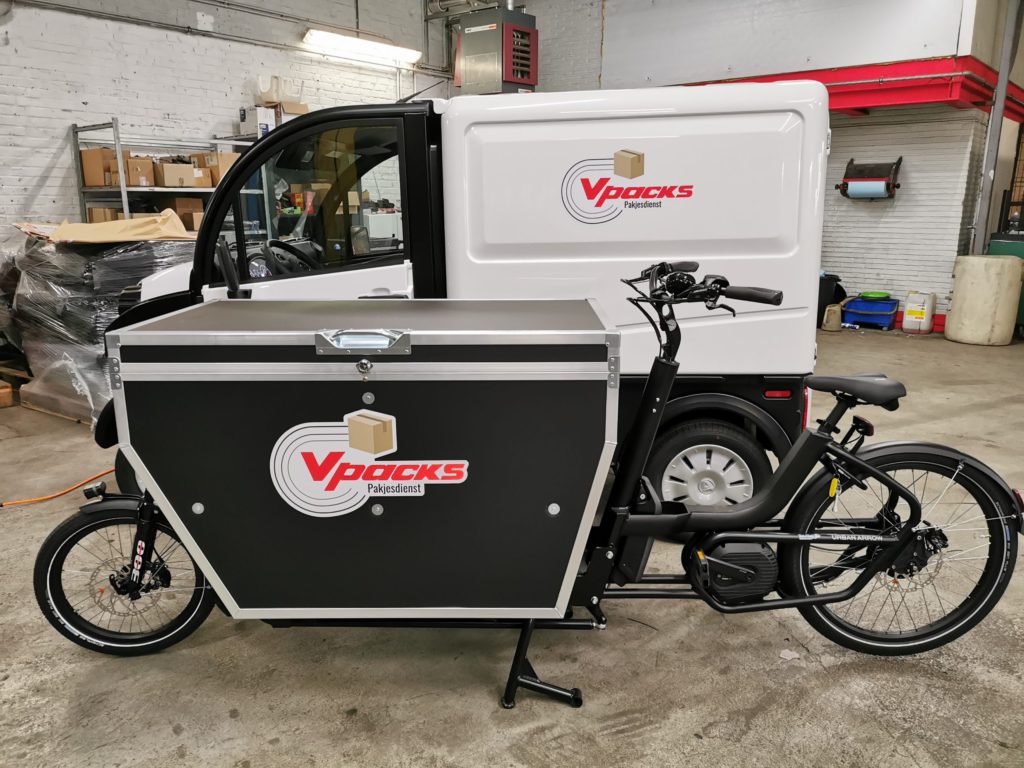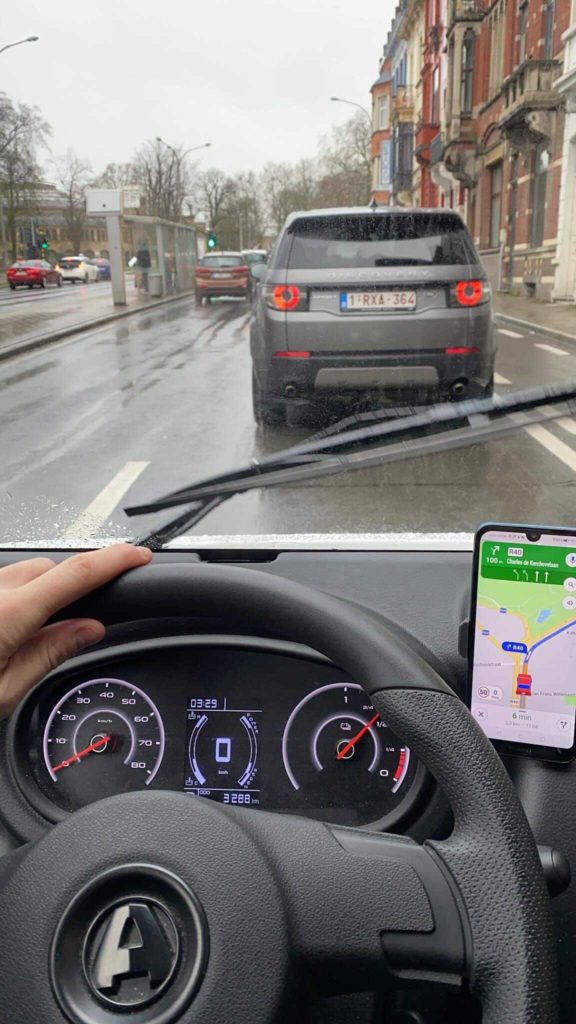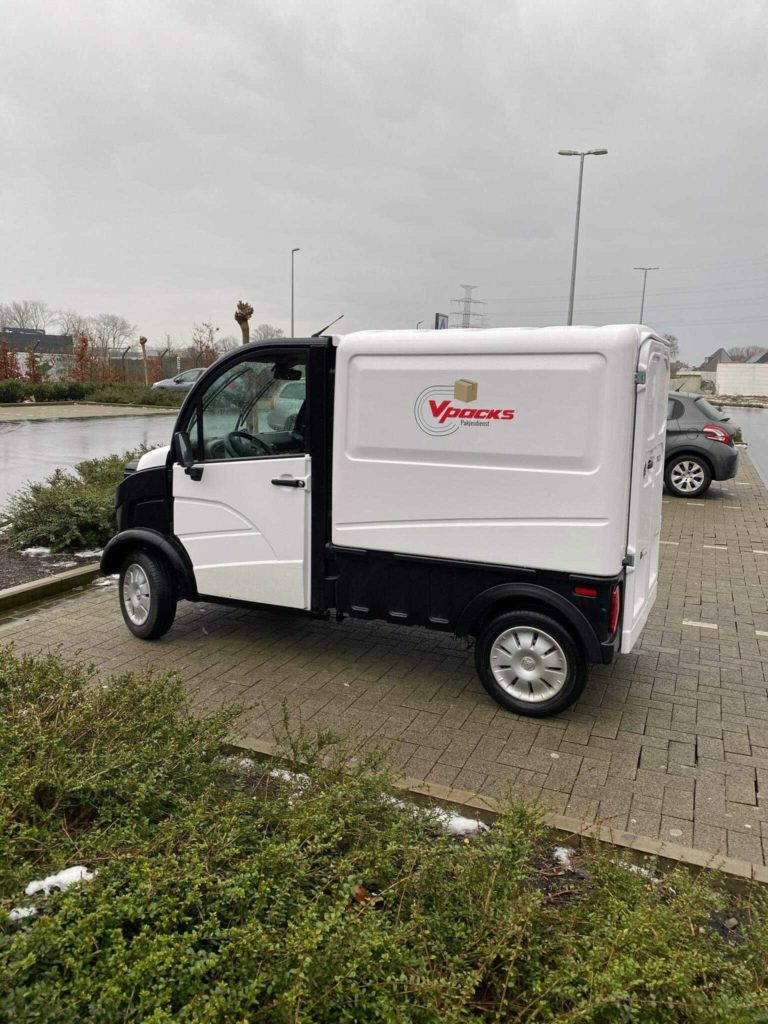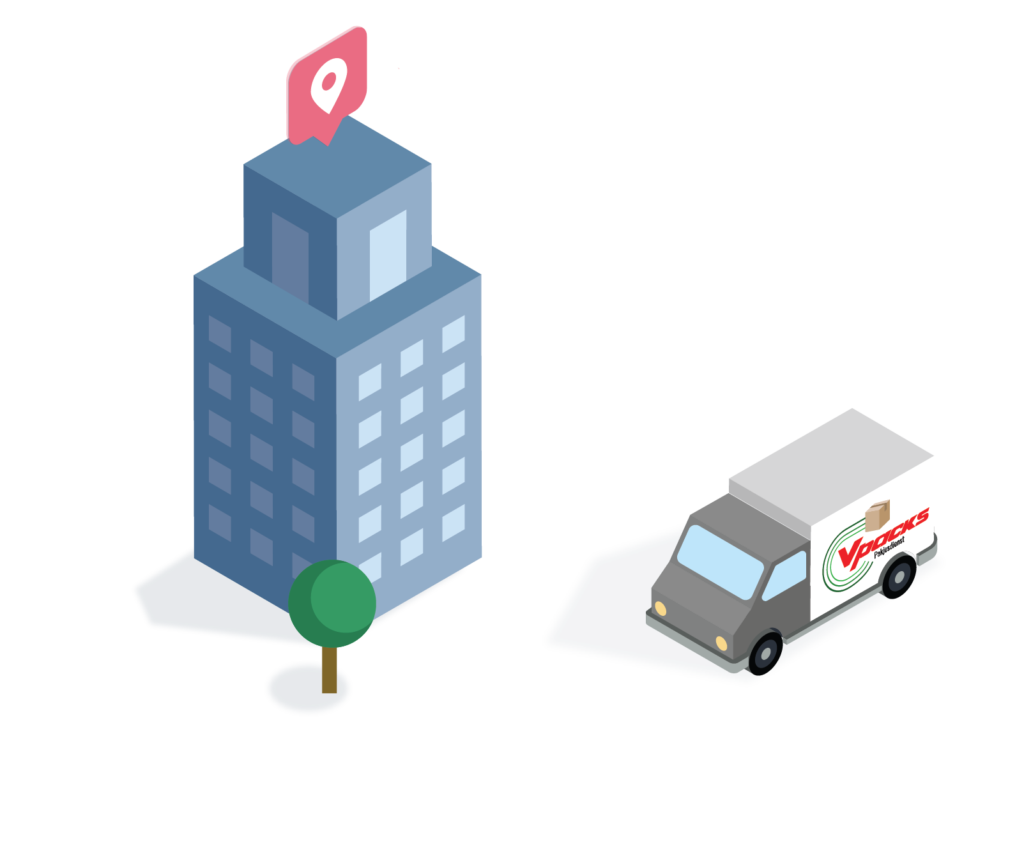Businesses across the world are struggling to survive as the coronavirus pandemic continues. This has led to the growing need for enterprises to be flexible and to diversify into new activities like for example parcel delivery.
In a recent article from McKinsey, Ready, set, go: Reinventing the organisation for speed in the post-COVID-19 era, companies must “increase the speed of decision making, while improving productivity, using technology and data in new ways, and accelerating the scope and scale of innovation.” In this context, we’re looking at V-tax and how they optimized their parcel delivery service, a new branch of their business that was successfully developed and rolled out
Dealing with decreasing demand

V-tax, the largest and oldest taxi company in Ghent has been active since the Second World War. Since then, the firm grew to employ over 200 drivers using a fleet of 180 cars. The core of the business hadn’t changed until the pandemic hit.
Because of the confinement- and travel-restrictions, demand for taxi services plummeted. A large part of the revenue which was being generated by airport shuttles, almost completely dried up. As a result, V-tax had to do something to continue generating revenue and continue providing work to their employees.
A project needed to be developed which would be contributional to their exciting activities as well as help the company better shield itself against strong fluctuations in demand.
Diversification through parcel delivery
“We came up with the idea of launching a courier service just around the point when we were coming out of the first lockdown”, says Niels Van De Casteele, who is responsible for this new project called V-packs.
At that time there was a huge increase in demand for parcel deliveries as more and more people started ordering online. Postal services weren’t even able to guarantee deliveries or were struggling with big delays. “This was the perfect opportunity to launch our idea”, says Van De Casteele.


Optimizing parcel deliveries with Dropon
“We were able to act fast and managed to deliver our first parcels this summer, only a few weeks after initiating the project! One of the difficulties we faced was organizing and optimizing the delivery routes for the parcels. When operating as a taxi service, this problem doesn’t occur as people only go from point A to B without intermediary stops. For parcels the story is different, a driver needs to make multiple drops in a relatively small and dense environment. With millions of possibilities in what route to follow it became clear we needed a tool to help manage and optimize our delivery routes. This would not only help us to be more efficient but also scalable and future-proof.”
“When searching for solutions we were lucky to run into Dropon as a possible partner. We found exactly what we needed. They provided us with a simple and efficient way to plan and follow our trips as well as a way for our drivers to follow their process and instructions through the android-app. The delivery management tool also enabled us to automatically send notifications to our customers with live ETA’s for their parcels. This resulted in less missed deliveries and higher customer satisfaction rates.”
Future proof
The service is initially going to operate solely in Ghent, which is the main hub for V-tax. Both V-packs and V-tax are available 24/7 through their shared dispatching centre. Deliveries will be made with cargo-bikes and electric vehicles like the Aixam Pro e-Truck. This makes it both eco-friendly and easier to move around the city and its Low Emission Zone (LEZ). In addition, these vehicles can be driven by people without a license enabling them to be operated by students.
“Today we are delighted with the decision to have started V-packs”, says Niels; “we were successful in finding customers and optimizing our internal processes to make our business model viable. Our main target audiences are local merchants and private individuals in the center of Ghent. We also get mandates from courier services for whom we deliver about a hundred parcels in a day.
“The launch of this new parcel delivery service also attracted some extra attention to our main activity as the delivery vans stand out in the city center. It brings us into contact with local merchants and people who would otherwise never use our taxi service. The cross-contamination of customers from one part of our business to the other will prove to be beneficial over the long run. We are sure that both services will keep growing and complementing each other. Our business is now better shielded and prepared for pandemics or evolutions like we are seeing today.”

